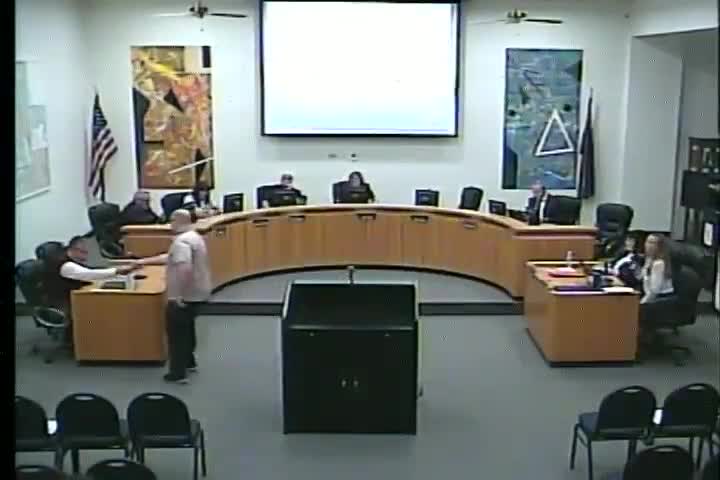District presents spring 2025 assessment results; board discusses grading alignment and supports for science and CTE pathways
Get AI-powered insights, summaries, and transcripts
Subscribe
Summary
District assessment staff presented AASA, AZSCI, ACT Aspire and ACT results showing Cave Creek students above state and national averages in many areas; the board discussed gaps in middle-grade ELA and math, special-education costs and planned grading/assessment changes.
District assessment staff on Oct. 14 presented spring 2025 assessment results for grades 3 through 11, reporting that Cave Creek students generally outperformed state averages but that gaps remain in several middle-grade and secondary content areas.
Dr. Jensen, who led the presentation with Ms. Hill (director of data and assessment), said the AASA (grades 3'8) and AZSCI (state science) results show the district remains above state averages but highlighted areas needing work: "sixth grade ELA, seventh grade and eighth grade ELA, and then seventh and eighth grade math," she said. Jensen said the district's instructional teams are implementing evidence-based resources, emphasizing small-group instruction and partnering with parents to improve outcomes.
On high-school science, district staff said more students are taking the recommended lab-science pathway (biology, chemistry, physics) and that the cohort of students who completed all three sciences before the ACT substantially outperformed others: the presentation noted an ACT science average of 24.1 for that pathway versus a national average of about 19.7, and reported that 65% of students in that pathway met the ACT benchmark of 23.
Staff also reviewed AP, IB, dual-enrollment and CTE outcomes, reporting strong AP pass rates, growth in dual-enrollment and industry certifications in CTE sequences. Jensen said the district added the Arizona seal of civics literacy and will add a seal of personal finance, plus local biliteracy seals.
Board members questioned accommodations and how state and national testing bodies handle 504/IEP accommodations. Jensen explained that college-board and ACT accommodations require documentation and that the district must provide historical use and medical documentation in many cases; she said about 150 juniors in the current cohort have IEPs or 504 plans.
Next steps presented by staff include aligning K'12 assessments and grading practices with research and ensuring classroom grades reflect mastery. Dr. Jensen described potential changes to grading practice, including eliminating extra credit and expanding timely feedback and controlled retake policies so that assessments measure mastery rather than attendance or behavior. Jensen said those changes will be discussed and formalized over the year.
No formal action was taken; the presentation was informational. Board members and the superintendent's cabinet praised teachers and administrators for the results and asked staff to continue evaluating course offerings, dual-enrollment and program pathways.
